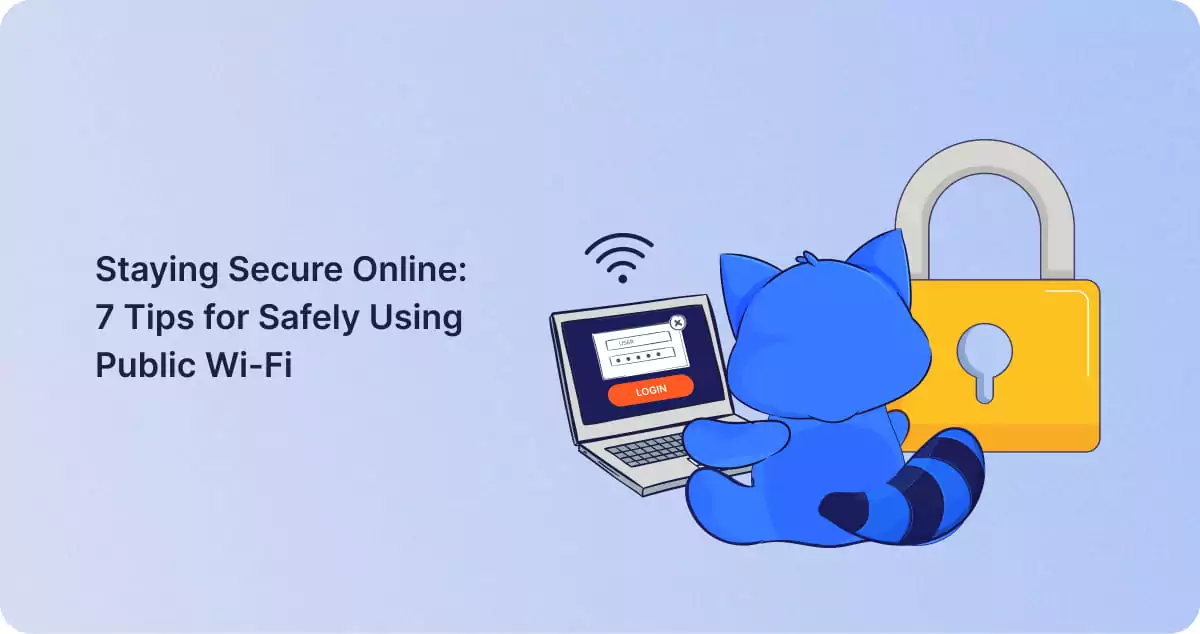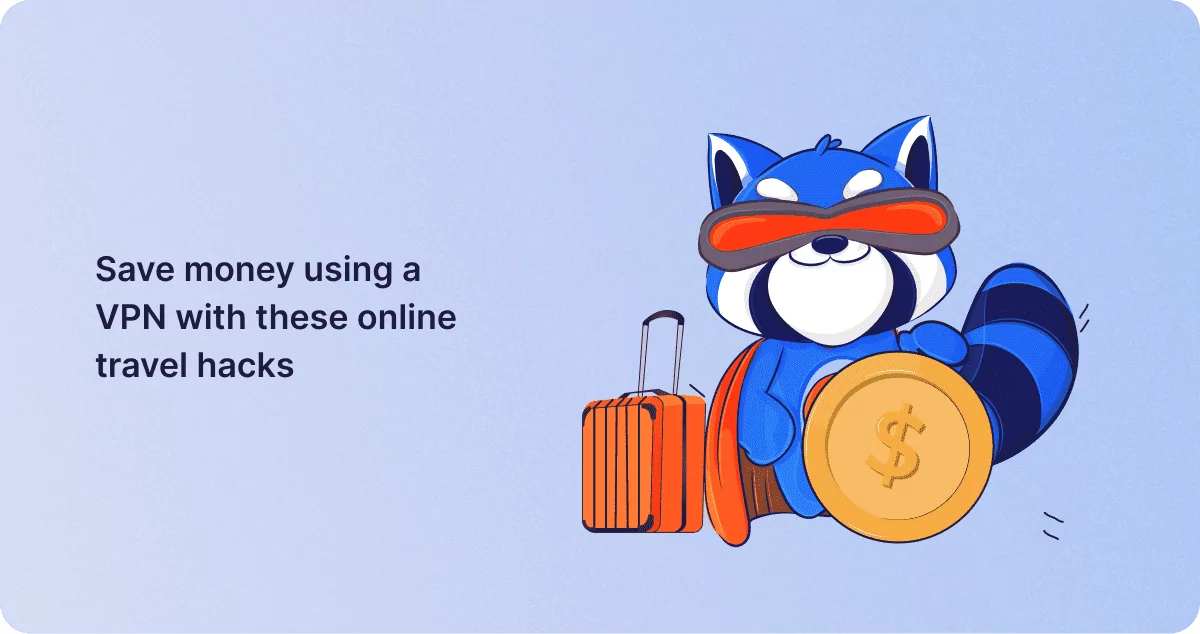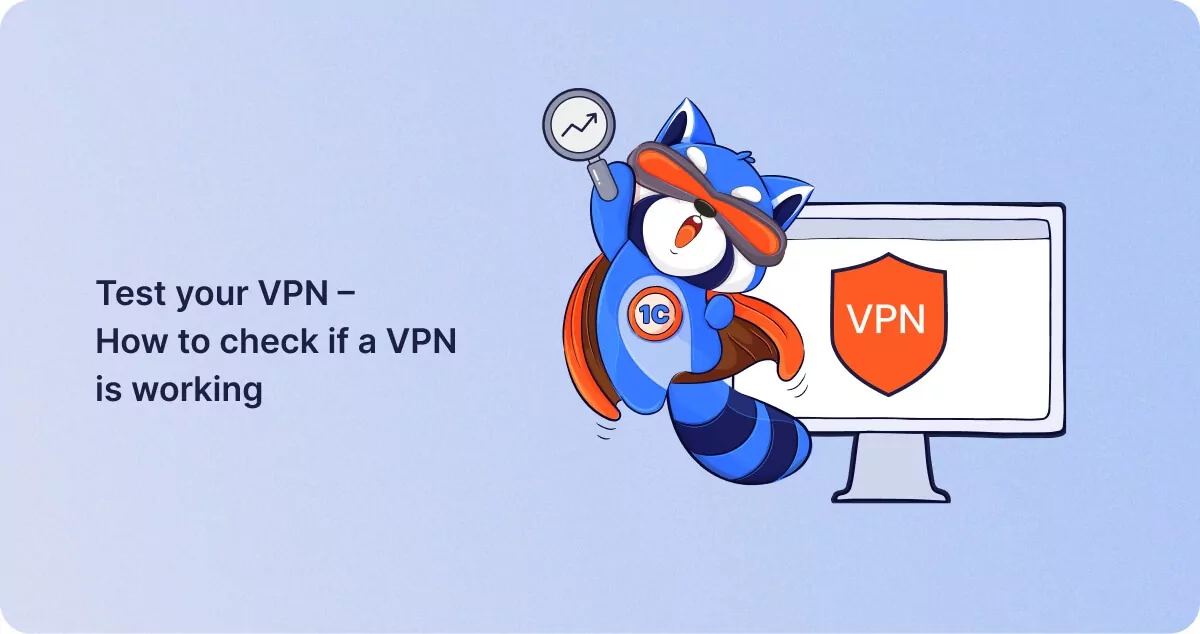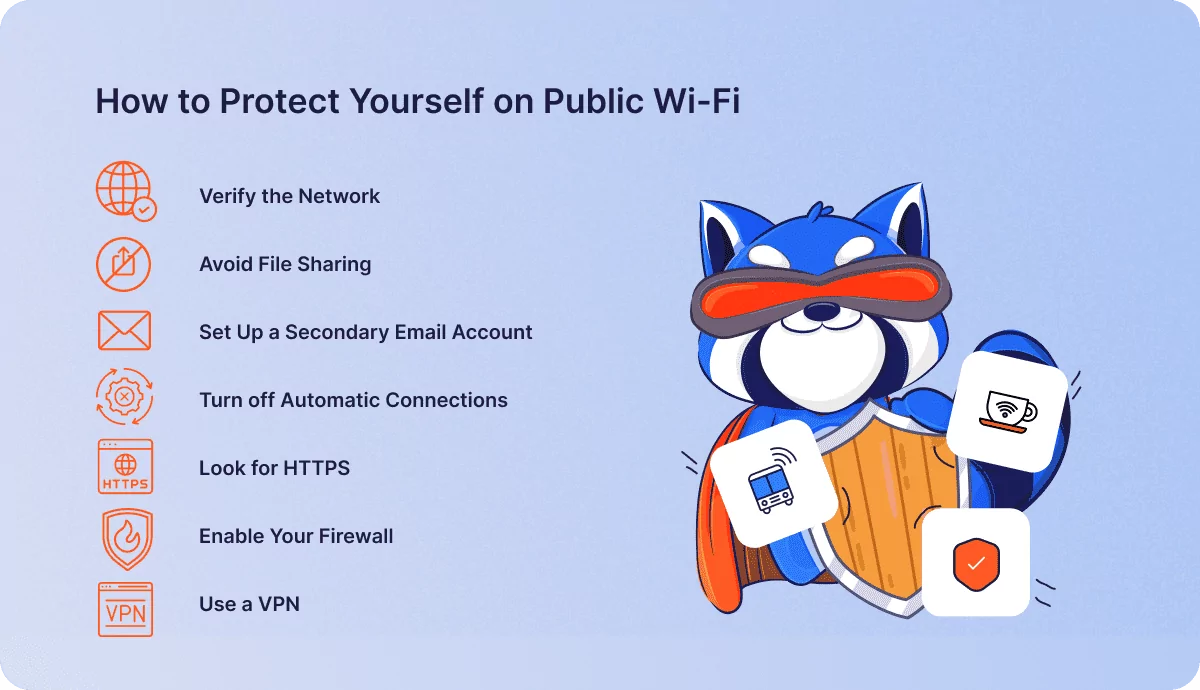Staying Secure Online: 7 Tips for Safely Using Public Wi-Fi
1Click VPN Team in cybersecurity
07.12.2023 | 3 min read

Table of contents
The Internet is an essential part of virtually everything we do nowadays, from shopping to banking to entertainment, and with remote working arrangements on the rise worldwide, the need to be constantly online is growing for a great many of us. As such, we are increasingly relying upon public Wi-Fi in cafés, airports, and public workspaces to get connected on the fly.
However, while having access to public Wi-Fi can make your life easier in many ways, it’s important to remember that it can also put you at risk.
Due to their open nature, public Wi-Fi networks tend to be considerably less secure than private ones. Without robust encryption or proper authentication methods in place, these networks are open to exploitation by cybercriminals, who can easily utilize them to intercept the data of unsuspecting users. For this reason, you should take steps to protect yourself whenever you opt to use a public Wi-Fi network to access the Internet. Here, we will provide some useful tips to help you do just that.
How to Protect Yourself on Public Wi-Fi
- Verify the Network
It’s not unheard of for cybercriminals to set up rogue networks in public places in hopes of tricking innocent users into exposing their devices. Before logging onto a network at a public place like a café, for instance, speak to a member of staff there. Finding out the name and the IP address of the network can help you ascertain whether the one you’re about to connect to is legitimate.
- Avoid File Sharing
When using public Wi-Fi, it’s advisable to switch off wireless file sharing or airdrop features on your device. This will help you avoid having your files accessed without your consent and will prevent unknown users from sending you potentially harmful files.
- Set Up a Secondary Email Account
While you may be doing your best to keep your personal information private when using public Wi-Fi, many free networks require some details to log in, with an email address being the most common. If you have concerns about providing your personal email address, consider creating a secondary address specifically for use on public Wi-Fi. This will help to limit the risk factors associated with using open networks.
- Turn off Automatic Connections
In order to keep your device secure, you must remain vigilant to potential dangers, so the last thing you need is to have your device connecting to unsecured networks without your knowledge. fortunately, you can disable this feature by opening your network center, selecting the relevant network, and switching off automatic connection in properties. Additionally, you can opt to disconnect and forget a network once you are finished using it. This will help you to stay in full control of what’s happening on your device so that you mitigate against cybersecurity risks.
- Look for HTTPS on your browser’s address bar
When using public Wi-Fi, it’s a good idea to check that the websites you visit have HTTPS (Hypertext Transfer Protocol Secure), which can do this by simply checking the beginning of a webpage’s URL. Websites that have HTTPS benefit from an encryption protocol that secures traffic between them and your device. This makes it more difficult for other network users to access your data, providing insulation against cybersecurity risks.
- Enable Your Firewall
If your device has a built-in firewall feature, you should always enable it whenever using a public Wi-Fi network. A firewall will screen both incoming and outgoing network traffic, flagging and blocking unauthorized access attempts and potentially harmful data transfers. This will make it considerably more difficult for malicious entities to target your device.
- Use a VPN
The best way to protect yourself when using public Wi-Fi is to use a Virtual Private Network (VPN) on your browsing device. A VPN will help to protect you in two important ways. Firstly, by rerouting your connection through a remote server, it will mask your IP and help prevent you from being tracked online. Secondly, a VPN will utilize robust encryption protocols to encrypt all of your device’s data traffic.
Concluding
With so many of our daily activities taking place in the online space nowadays, constant Internet access has become a pressing need for a large part of the global population. Public Wi-Fi networks are a useful way to fulfil that need, but they come with the distinct downside of a lack of meaningful security. Fortunately, it’s possible to mitigate the risks associated with using public Wi-Fi. By taking caution about what you put online, enabling your device’s security features, and utilizing a VPN, you can ensure that your device stays protected at all times, allowing you to use public Wi-Fi with absolute peace of mind.
Similar posts

8 Online Smart Travel Hacks Supercharged by VPN
A virtual private network (VPN) allows you to access the internet via an encrypted ‘tunnel’ to a secure server before co…

Test your VPN – How to check if a VPN is working
Virtual Private Networks have quickly become go-to tools for modern Internet users who are conscious of protecting their…
